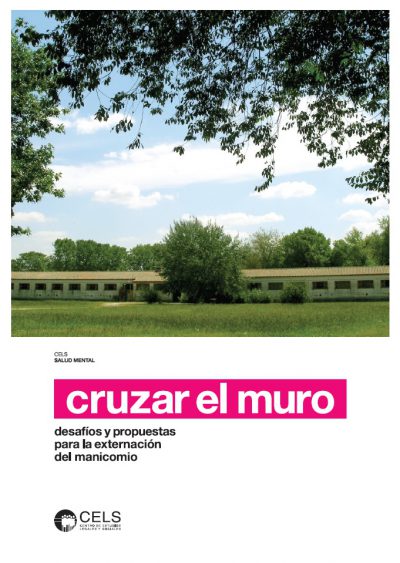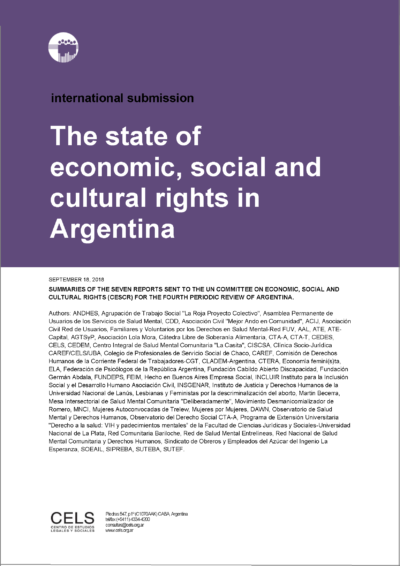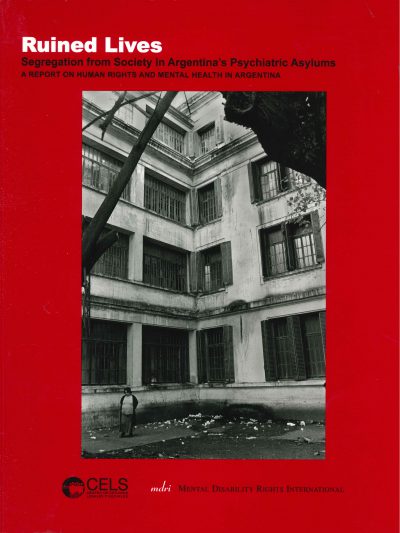On Milei’s “omnibus bill”
The Argentine government led by Javier Milei seeks to dismantle essential procedures and implement regressive measures affecting human rights and democracy. Within a span of three weeks, from Decree 70/23 to the proposed “Bases…” law, the Executive Branch introduced 1649 articles altering the entire social and political landscape, protection parameters, and state architecture. Congress bears the political responsibility to refrain from validating it.
Urban drug trafficking, migrants, and the defense of activists: some of Cels’ topics for #fmdh23.
Between March 20 and 24, we will participate in the 3rd World Forum on Human Rights, organized by UNESCO, in Buenos Aires. As members of several committees, CELS is participating in more than a dozen activities for exchange and debate.
UN universal periodic review: What is Argentina’s human rights situation?
Argentina will be reviewed in the United Nations Human Rights Council on Monday, January 23. It will have to report to its peers on compliance with its international commitments on human rights matters. CELS, along with other organizations, produced reports as prior contributions for the assessment and recommendations to be produced by this mechanism. We will also be present at the session in Geneva.
Absolution for Luz Aimé Díaz
As the hearings begin in Luz Aimé’s trial, we at CELS join the campaign for her absolution. The case has been marked by discrimination based on her travesti identity wich lead to a change in charges based on an exagerated hypothesis that cannot be substantiated by facts. The deficiency of the justice system ends up putting innocent people in prison, leaves the victims of offenses without reparation while offenders remain unpunished.
Individual and Collective Mourning Require Assistance
Grief must be considered as a right, which cannot be reduced to an individual matter. Families and individuals should not face alone the demise of their loved ones. The impact of these deaths needs to be shared and processed collectively. Joint document with Memoria Abierta.
Deaths in the Esteban Echeverría police station are a focus of the National System for the Prevention of Torture
The National System’s annual assembly analyzed the grave humanitarian situation in places of confinement and demanded justice for the victims of a fire in Police Station 3 of Esteban Echeverría, Buenos Aires province. Participants included representatives of the judicial branch and civil society, as well as family members of victims.
Beristain: “Reparation must be attuned to the needs of victims”
When victims of human rights violations or their relatives seek justice, it is fundamental that they have psychological support. Organizations from the region that do such psycholegal work met in Buenos Aires to exchange strategies.
The state of economic, social and cultural rights in Argentina
Autor/a: Various
10 pgs.
ver más
Argentine state faces UN Committee Against Torture
The Argentine state’s compliance with the Convention against Torture will be evaluated on Wednesday, April 26 and Thursday, April 27. CELS submitted a report to the UN Committee that carries out the evaluation and contributed to two reports produced with other organizations.
No psychiatric asylums by 2020 is possible
Joint statement by the Asociación Civil por la Igualdad y la Justicia (ACIJ), the Asociación por los Derechos en Salud Mental (ADESAM) and CELS.
The UN Human Rights Committee analyzed the state of civil and political rights in Argentina
Dialogue between the UN Human Rights Committee and the Argentine state regarding compliance with the International Covenant on Civil and Political Rights.

Crossing the Threshold: Challenges and Proposals for Deinstitutionalization from Asylums
Autor/a: CELS
ver más
Ruined Lives: Segregation from Society in Argentina’s Psychiatric Asylums
Autor/a: Mental Disability Rights International (MDRI), Center for Legal and Social Studies (CELS)
86 pgs.
ver más




